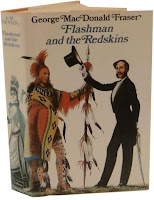
Bedchamber with a young Mr. and Mrs. Bennett in four poster bed. Zoom in on bare breasts.
Mrs. Bennett: Yes, yes!
Fade Scene as above.
Mr. Bennett: Yes, yes!
Fade Scene as above.
Concerned bystander (stepping in front of camera): I don’t think the book starts like this.
Director: Of course it doesn’t. Get him out, someone. Okay, we’ve had Jane and Lizzy’s conceptions, who’s next?
*******
Shot of countryside. A group of young women walk across the landscape. Repeat.
******* Grounds of Pemberly. Pond. Matthew McFadyen emerges wearing wet shirt.
Grounds of Pemberly. Pond. Matthew McFadyen emerges wearing wet shirt.
**********
Upstairs, the Bennett’s house. Jane dressing for the ball.
Jane: Does this make my butt look big?
Zoom in on her almost naked breasts.
Elizabeth enters carrying a large basket of out of season flowers. She smiles knowingly.
*******
Shot of countryside in rain. A group of young women walk across the landscape.
******* Grounds of Pemberly. Pond. Colin Firth emerges wearing wet shirt.
Grounds of Pemberly. Pond. Colin Firth emerges wearing wet shirt.
*******
Bennett’s garden. Unspecified number of young women run across the lawn.
*********
Grounds of Pemberly. Pond. Large male pig wallows.
********
Bedchamber. Bedchamber with Lydia and Wickham in four poster bed. Zoom in on bare breasts. Mr. Darcy enters. He glowers.
********
 Grounds of Pemberly. Pond. Laurence Olivier emerges wearing wet shirt in black and white.
Grounds of Pemberly. Pond. Laurence Olivier emerges wearing wet shirt in black and white.
*******
 Bedchamber with Lizzie and Mr. Darcy in four poster bed. Zoom in on bare breasts.
Bedchamber with Lizzie and Mr. Darcy in four poster bed. Zoom in on bare breasts.
******
The Bennett sisters, topless, walk across a grassy meadow.
Director (stepping in front of camera): What the hell’s this?
BBC Official: Regulations, gov. You haven’t met the official BBC bare breasts quota.
Director: Oh, that’s okay then. Action!
Let us know what silly things you’ve done today, and vote for Rules of Gentility in AAR’s Annual Reader Poll –it’s in the Favorite Funny category.












